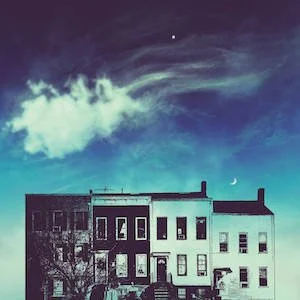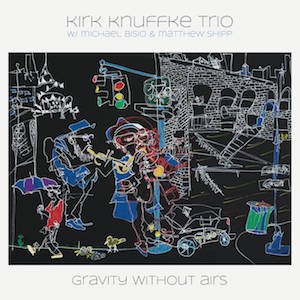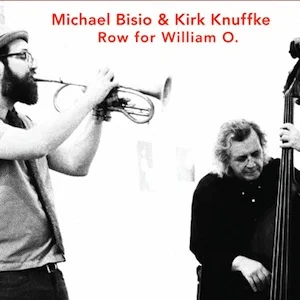Label: RPF Records, 2025
Personnel - Kirk Knuffke: cornet, vocals; Stomu Takeishi: bass; Bill Goodwin: drums.
For his 25th studio album, Window, cornetist-composer Kirk Knuffke—known for his expressive range and fearless commitment—dives into jazz minimalism, aiming straight for the listener’s heart through the beauty of his melodies. Here, he reveals another side of his artistry, singing on three tunes while engaging in inventive, telepathic interplay with his trio mates: the highly explorative bassist Stomu Takeishi, drawn to peculiar pulses and throbs, and veteran drummer Bill Goodwin, whose refined drive and tasteful touch elevate every track. Both musicians previously appeared on Knuffke’s quartet album Lamplighter (FSNT, 2015).
“Choose” is designed with a catchy drum shuffle, well-timed fills, a velvety plain melody, and a crunchy, funkified bass groove complemented with cool slides. Knuffke’s signature blend of elegance and edge comes to life on both “For Your Needing” and “Mr. Bill”. The former, wrapped in a rainbow of colors and propelled by Takeishi’s twangy tone, merges Charlie Chaplin’s cinematic playfulness with a spongy avant-garde jazz spirit. The latter—dedicated to the 83-year-old drummer featured here—sustains the avant-garde mood through quirky imagination and subtle fusion hints, courtesy of Takeishi’s unique sonic language.
Knuffke’s vocals enriches three pieces: “Runs Red”, which calls to mind the band Morphine, with Takeishi’s amazing harmonic context and Goodwin’s tribal percussion; “Window”, whose restrained Tom Waits-like vibe is enhanced by Goodwin’s exquisite brushwork; and “A Little More So”, a bluesy, melodic closer that wraps the album with warmth.
One of Knuffke’s great musical strengths is his adaptability to different formats and moods. There are three “Gong Improv" pieces topped with delicate cornet lines floating over bass slurs and trills. Despite of its title, “Ballad” gets some tense, eerie moments, while “Heavy Times” feels vibrantly jazzy and bluesy, driven by cornet-bass unisons and sensitive brushwork. The playful “Carey”, on the other hand, opens with an expressive drum sequence, showcasing Goodwin again in a spontaneous improvisation.
There’s an undeniable sense of familiarity and chemistry within this trio, reflected in music that’s warm and passionate. Window stands as a glowing affirmation in the art of three-way conversation.
Favorite Tracks:
01 - Choose ► 03 - For Your Needing ► 04 - Mr. Bill ► 06 - Runs Red










